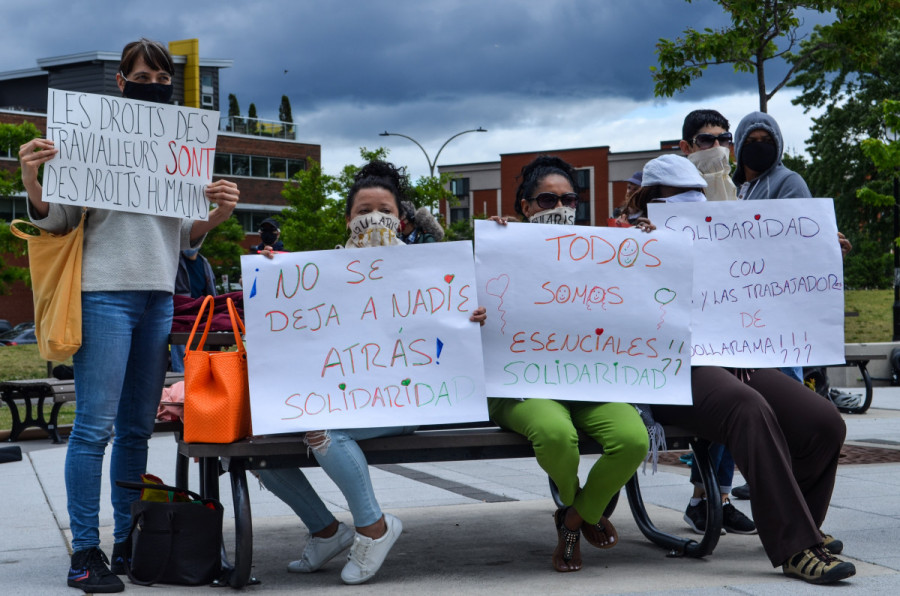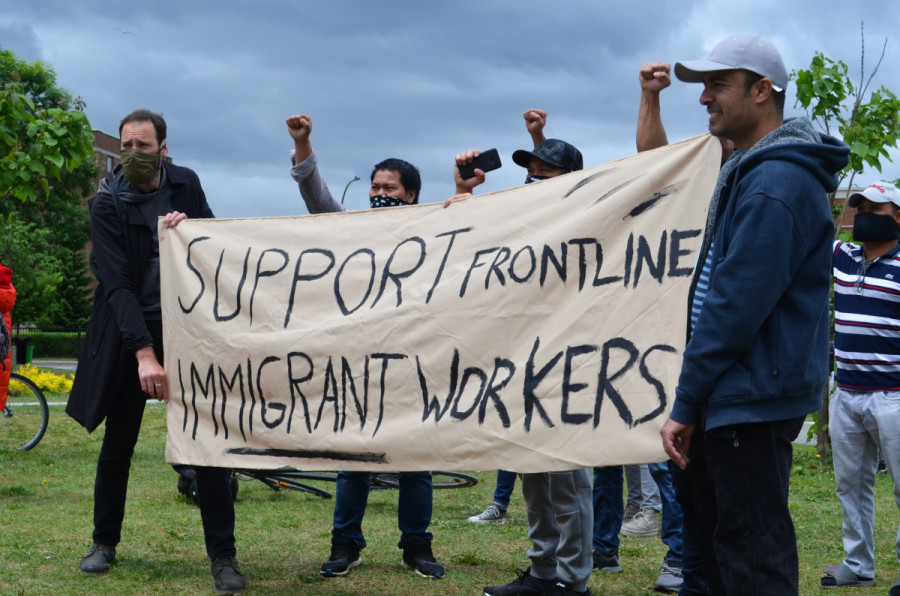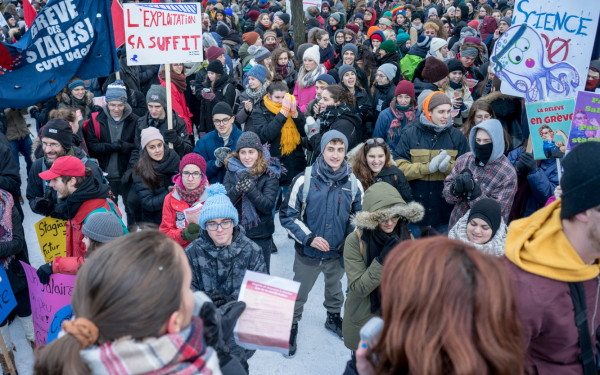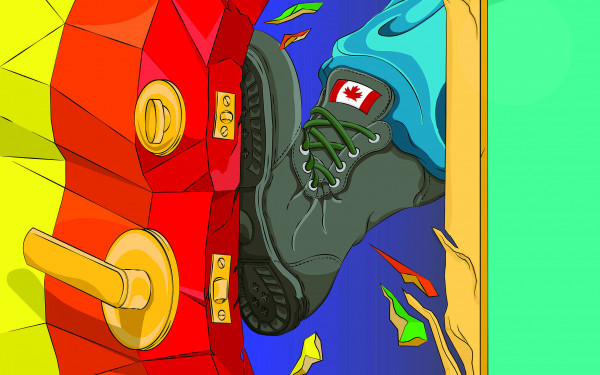Dollarama’s Lack of PPE for Warehouse Workers Sparks Protest
Unfair Wages and Dismissal of Safety Precautions Brought Center Stage
Demonstrators raised their voices at the corner of St. Laurent and Jarry St. to recount their experiences of mistreatment as Dollarama warehouse workers on June 13.
The crowd of about 60 people was filled with community organizers, government officials, and Dollarama workers.
Throughout the pandemic the estimated 1,000 warehouse Dollarama employees continued working, as they were considered essential workers.
Some new health measures were introduced, such as providing masks and gloves, and installing a hand-washing station in the cafeteria area. Joey Calugay, from the Immigrant Workers Centre, is not satisfied with these additions.
Calugay explained to quota workers have to meet—making it difficult to maintain distance. “Even if you set up hand-washing stations […] they don’t have the time to stop and walk to the cafeteria to wash their hands,” he said.
There can be hundreds of workers per shift. That means hundreds of workers touching the sanitizer pump, and hundreds of workers in the locker rooms throughout the shift.

Even before the pandemic, workers were requesting masks and gloves due to the dust and lack of proper air ventilation.
“It’s the pandemic so now it’s in style to hand out gloves and masks,” said Calugay. “I don’t understand why that was so hard to do before the pandemic.”
“These are things that Santé Publique and the labour board is missing,” he added. “I think they need to send inspectors on sight to evaluate the situation and to rethink how these things will work.”
For companies such as Dollarama—whose profits soared during the pandemic—their treatment of their workers is very telling, he said.
Luca Palladino, from Sum of Us, a corporate watchdog for issues such as workers’ rights,
explained the actions that took place in order to give warehouse workers a premium for working during the pandemic.
In April, Sum of Us started a petition that got 25,000 signatures, demanding better Personal Protective Equipment for workers, as well as increasing the hazard pay to $2 per hour. Other retailers like Canadian Tire increased their employees’ salaries up to $3. They also put plexiglass between the cashiers and clients.
“They’re being mistreated because they’re agency workers, because they’re immigrants. The turnover is so high, they’re completely treated as disposable.” —Mostafa Henaway
Palladino and the Sum of Us team were not satisfied with this increase, as Dollarama made hundreds of millions of dollars in profit in 2019 and have made substantial sales during the pandemic, he said.
Amongst other initiatives, they sent emails directly to the CEO of Dollarama. As Palladino worded it, they “sent us veiled threats of legal action.”
Sum of Us persisted, and warehouse workers got an additional $3 per hour premium. They are still working to get a salary increase for storefront workers, as well as work at the deeper rooted issue of the use of temporary agencies, which are mostly private companies who match workers to different companies.
Mostafa Henaway, community organizer for IWC, said most of the factory workers are immigrants, refugee claimants, precarious status or immigrants with varying statuses.
“They’re being mistreated because they’re agency workers, because they’re immigrants. The turnover is so high, they’re completely treated as disposable,” he said.
The employment agencies supposedly became their employers, which allowed companies like Dollarama to circumvent basic labour laws. If cases against either company are filed, they’re able to avoid responsibility by blaming the other, said Henaway.

Job Délicat was a Dollarama warehouse employee for three years and was promoted to being a trainer. He mentioned to a supervisor that the employees were complaining about the health conditions at the warehouse during the pandemic. The next day, he was answering other employees questions as he was the trainer. His supervisor told him he was wasting time and fired him. No answers were given when asked why he was being fired.
He was given two days pay and left without a job.
“Do I not have the right to dignity? Do I not have the right to live? Do I not have the right to pay for my house?” he said. “Is that how it works here, or is it just me treated like this?”
According to Henaway, IWC is also demanding Dollarama permanently hire their temporary workers.
“People are considered essential workers and they should be given status for it,” he said.
During the pandemic the effects of hiring through temporary agencies are heightened, Calugay added. As the workers are frequently moved to different work places, “that puts the workers and the community in a vulnerable situation with regards to the spread of the virus,” he said.
“During the pandemic we say that they’re essential workers,” Calugay said. “Is that not the case after the pandemic? It’s only worth it to pay you fairly during the pandemic?”


_600_832_s.png)




